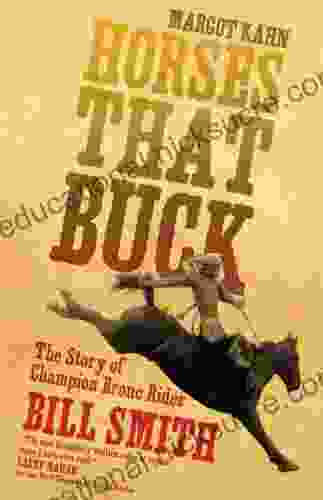Scarcity: Why Having Too Little Means So Much

Scarcity is a fundamental economic concept that refers to the limited availability of resources relative to the demand for those resources. It is a recurring issue faced by individuals, organizations, and entire economies, and has a profound impact on our decisions, behavior, and well-being. Understanding the dynamics of scarcity can provide valuable insights into human nature, market forces, and the challenges of allocation.
4.5 out of 5
| Language | : | English |
| File size | : | 857 KB |
| Text-to-Speech | : | Enabled |
| Screen Reader | : | Supported |
| Enhanced typesetting | : | Enabled |
| X-Ray | : | Enabled |
| Word Wise | : | Enabled |
| Print length | : | 302 pages |

The Psychological Effects of Scarcity
Scarcity has a significant influence on our psychology. When resources are limited, we tend to experience feelings of anxiety, stress, and a sense of loss. This is because we perceive scarcity as a threat to our survival and well-being. In response, we may adopt coping mechanisms such as hoarding, panic buying, or even aggression.
Studies have shown that scarcity can impair our cognitive abilities and decision-making. We may become less rational and more impulsive when faced with limited resources. For example, individuals in poverty may make short-sighted financial decisions to cope with immediate needs, even if those decisions have negative long-term consequences.
Market Dynamics and Scarcity
Scarcity plays a crucial role in market dynamics. When a resource is scarce, its value tends to increase. This increase in value is reflected in the price of the resource. Scarcity can also lead to competition among consumers and businesses, as they strive to acquire the scarce resource.
In a free market economy, the forces of supply and demand interact to determine the price and availability of goods and services. When demand for a product exceeds supply, the price will rise, signaling to producers that they should increase production. However, if supply cannot meet the increased demand, scarcity will persist, leading to higher prices and potential shortages.

Government Intervention and Scarcity
Governments often intervene in markets to address scarcity issues. One common strategy is price regulation, which involves setting maximum or minimum prices for a particular good or service. Price regulation can help to ensure that essential goods are available to all consumers, regardless of their income. However, it can also lead to artificial shortages if the regulated price is below the market equilibrium price.
Another government intervention is rationing, which involves allocating scarce resources to consumers through a system of coupons or permits. Rationing can be effective in preventing hoarding and ensuring that everyone has access to essential goods, but it can also create long queues and black markets.
The Challenge of Allocation
One of the greatest challenges posed by scarcity is the task of allocation. In situations where resources are limited, decisions must be made about who will receive those resources and in what quantities. These decisions are often difficult and can have far-reaching consequences.
In an ideal world, resources would be allocated in a fair and equitable manner. However, in reality, allocation decisions are often influenced by factors such as power, wealth, and social status. This can lead to inequality and resentment, as those who are denied access to resources may feel that they are being treated unfairly.
Sustainable Scarcity
As the world's population continues to grow and consumption levels rise, the issue of scarcity is likely to become increasingly pressing. It is essential to find sustainable ways to use and manage our limited resources. This includes reducing waste, promoting resource conservation, and investing in renewable energy sources.
By embracing sustainable practices, we can reduce the impact of scarcity on our planet and ensure a more equitable distribution of resources for future generations.
Scarcity is an inescapable fact of life. It is a condition that drives our behavior, shapes our markets, and forces us to make difficult decisions. Understanding the dynamics of scarcity can help us to navigate its challenges and create a more sustainable and equitable world for all.
4.5 out of 5
| Language | : | English |
| File size | : | 857 KB |
| Text-to-Speech | : | Enabled |
| Screen Reader | : | Supported |
| Enhanced typesetting | : | Enabled |
| X-Ray | : | Enabled |
| Word Wise | : | Enabled |
| Print length | : | 302 pages |
Do you want to contribute by writing guest posts on this blog?
Please contact us and send us a resume of previous articles that you have written.
 Fiction
Fiction Non Fiction
Non Fiction Romance
Romance Mystery
Mystery Thriller
Thriller SciFi
SciFi Fantasy
Fantasy Horror
Horror Biography
Biography Selfhelp
Selfhelp Business
Business History
History Classics
Classics Poetry
Poetry Childrens
Childrens Young Adult
Young Adult Educational
Educational Cooking
Cooking Travel
Travel Lifestyle
Lifestyle Spirituality
Spirituality Health
Health Fitness
Fitness Technology
Technology Science
Science Arts
Arts Crafts
Crafts DIY
DIY Gardening
Gardening Petcare
Petcare Tom Doak
Tom Doak Dr Sarah Mitchell
Dr Sarah Mitchell Garth Nix
Garth Nix Samuel Hideo Yamashita
Samuel Hideo Yamashita Stephen Rea
Stephen Rea Helene Henderson
Helene Henderson Nicholas Harvey
Nicholas Harvey Andy Ankowski
Andy Ankowski Laurie David
Laurie David Richelle Mead
Richelle Mead Sebastian Deterding
Sebastian Deterding Michael Barela
Michael Barela Elianor M A
Elianor M A Jordan Ellenberg
Jordan Ellenberg Thomas Clarkson
Thomas Clarkson Robert N Wiedenmann
Robert N Wiedenmann Gene Stone
Gene Stone Andrew Shaw
Andrew Shaw Kevin Thomas
Kevin Thomas Carolyn Savage
Carolyn Savage Tim Clarkson
Tim Clarkson Patrick Barrett
Patrick Barrett William Ma
William Ma John H Carroll
John H Carroll Miles Smeeton
Miles Smeeton Fatime Losonci
Fatime Losonci Aaron Edkins
Aaron Edkins Andrew J Wakefield
Andrew J Wakefield Chelsea Johnson
Chelsea Johnson Timothy Ferris
Timothy Ferris Stephon Alexander
Stephon Alexander Kris Holloway
Kris Holloway Master Wong
Master Wong Mona Liza Santos
Mona Liza Santos Charlie Jones
Charlie Jones Peggy Orenstein
Peggy Orenstein The Car Crash Detective
The Car Crash Detective Jay Arthur
Jay Arthur K L Walther
K L Walther Rhianna Pratchett
Rhianna Pratchett Andrew Zerling
Andrew Zerling J K Rowling
J K Rowling Shari Mezrah
Shari Mezrah Eddy Starr Ancinas
Eddy Starr Ancinas Adam Minter
Adam Minter Tanya Crossman
Tanya Crossman Mary Sheedy Kurcinka
Mary Sheedy Kurcinka Monty Roberts
Monty Roberts David Sowell
David Sowell Jennie Lynn Gillham
Jennie Lynn Gillham Beverly Asante Puschmann
Beverly Asante Puschmann Michio Kaku
Michio Kaku Richard Bullivant
Richard Bullivant James Berry
James Berry Bruno David
Bruno David Jeffro Johnson
Jeffro Johnson Seth J Gillihan Phd
Seth J Gillihan Phd William Gurstelle
William Gurstelle David Jefferson
David Jefferson Edgar H Schein
Edgar H Schein Charles Cooper
Charles Cooper Jen Benson
Jen Benson Damon B Akins
Damon B Akins Kevin Anderson
Kevin Anderson James P Sethna
James P Sethna Linda Whitenton
Linda Whitenton Nigel Calder
Nigel Calder Lauren James
Lauren James Andy Crouch
Andy Crouch Stephan Lee
Stephan Lee N S Wikarski
N S Wikarski Seabury Quinn
Seabury Quinn Robert Parris Moses
Robert Parris Moses Nina Varela
Nina Varela Jennifer Lw Fink Rn Bsn
Jennifer Lw Fink Rn Bsn Lisa Roberts
Lisa Roberts Mallory Striesfeld Ms Lpc
Mallory Striesfeld Ms Lpc Jim Burnett
Jim Burnett Ronald T Kneusel
Ronald T Kneusel Gina M Biegel
Gina M Biegel Lawrence Dawson
Lawrence Dawson Rosita Boland
Rosita Boland John Sefton
John Sefton Carla Killough Mcclafferty
Carla Killough Mcclafferty Justin Fox Burks
Justin Fox Burks Reid Sheftall M D
Reid Sheftall M D Samara Caughey
Samara Caughey Marsha Walker
Marsha Walker Jon Gertner
Jon Gertner Roger Highfield
Roger Highfield Jerusha Clark
Jerusha Clark Stephen Cole
Stephen Cole Piero Ferrucci
Piero Ferrucci Julia Cameron
Julia Cameron Vincent Norman
Vincent Norman Annette K Larsen
Annette K Larsen John Mcphee
John Mcphee W Michael Kelley
W Michael Kelley Jay Sokolovsky
Jay Sokolovsky Richard G Klein
Richard G Klein Paul Davies
Paul Davies Rachel Pepper
Rachel Pepper Bronwen Skye
Bronwen Skye Leslie Klenke
Leslie Klenke Mark Vanhoenacker
Mark Vanhoenacker Michele Amitrani
Michele Amitrani Bill Dance
Bill Dance Rory Stewart
Rory Stewart Behrouz Moemeni
Behrouz Moemeni Tom Chesshyre
Tom Chesshyre George Washington Cable
George Washington Cable Sarah Digregorio
Sarah Digregorio John Atherton
John Atherton T H Lain
T H Lain Anthony Bishop Lmft
Anthony Bishop Lmft Erika V Shearin Karres
Erika V Shearin Karres Madeleine Roux
Madeleine Roux Slavka Bodic
Slavka Bodic Kent Nerburn
Kent Nerburn Shannon Brown
Shannon Brown Timothy Gordon
Timothy Gordon Chaz Scoggins
Chaz Scoggins Stephen Prata
Stephen Prata Carla Hannaford
Carla Hannaford Eli Maor
Eli Maor Melody Groves
Melody Groves Benedict Goleman
Benedict Goleman Jack David Eller
Jack David Eller Ira J Chasnoff
Ira J Chasnoff Emily Wibberley
Emily Wibberley Rami Ungar
Rami Ungar Shonda Rhimes
Shonda Rhimes Dave Chambers
Dave Chambers Andy Burnham
Andy Burnham Laird Hamilton
Laird Hamilton Palle Yourgrau
Palle Yourgrau Xavier P Hunter
Xavier P Hunter Jason R Rich
Jason R Rich Dan Allan
Dan Allan Claire Phillips
Claire Phillips Rolf Dobelli
Rolf Dobelli Andrius Jac
Andrius Jac Jason William
Jason William Robert M Schoch
Robert M Schoch Nelson L Schuman
Nelson L Schuman Mikael Krief
Mikael Krief Arthur Kleinman
Arthur Kleinman Tina H Boogren
Tina H Boogren Rita Jablonski
Rita Jablonski Lauren Kate
Lauren Kate M J Abadie
M J Abadie Robert Kurson
Robert Kurson Leigh Bernacchi
Leigh Bernacchi John Lofty Wiseman
John Lofty Wiseman V S Ramachandran
V S Ramachandran David Hawkins
David Hawkins Chris Mcmullen
Chris Mcmullen Jakob Schwichtenberg
Jakob Schwichtenberg Andrew Phillip Smith
Andrew Phillip Smith Pseudo Nym
Pseudo Nym William E Hearn
William E Hearn Joseph Bronson
Joseph Bronson Carl Petersen
Carl Petersen Mark Vella
Mark Vella Akil Palanisamy
Akil Palanisamy Luna Fox
Luna Fox Ginger Scott
Ginger Scott David A French
David A French Claiborne Young
Claiborne Young Christine Carter
Christine Carter Michael J Thompson
Michael J Thompson Tony Ray
Tony Ray Betty Smith
Betty Smith Mawi Asgedom
Mawi Asgedom Andrew H Knoll
Andrew H Knoll Brianne Donaldson
Brianne Donaldson Jon Paschetto
Jon Paschetto Eric H Cline
Eric H Cline Michelle Madow
Michelle Madow Claire Ahn
Claire Ahn Marcus Tomlinson
Marcus Tomlinson Andrew Reeves
Andrew Reeves Quick Guide
Quick Guide Jonathan Bennett
Jonathan Bennett Gila Leiter
Gila Leiter W Somerset Maugham
W Somerset Maugham Angela Berkfield
Angela Berkfield J P Mcevoy
J P Mcevoy Lynn Painter
Lynn Painter Teresa Palmer
Teresa Palmer Larry Jacobson
Larry Jacobson Bryan Sykes
Bryan Sykes Henry Fielding
Henry Fielding Pawel Guziejko
Pawel Guziejko Kay Pranis
Kay Pranis Sally Cook
Sally Cook Andrew Thompson
Andrew Thompson Alexander Bennett
Alexander Bennett Dustin Howe
Dustin Howe Vibrant Publishers
Vibrant Publishers Fourth Edition Kindle Edition
Fourth Edition Kindle Edition Prosanta Chakrabarty
Prosanta Chakrabarty Christopher Dunn
Christopher Dunn Ron Hackett
Ron Hackett Gordon W Green
Gordon W Green Mike Wells
Mike Wells Ruth Haley Barton
Ruth Haley Barton Sarah Castille
Sarah Castille Gordon Webster
Gordon Webster Ehsan Masood
Ehsan Masood Fiona Higgins
Fiona Higgins Elijah N Daniel
Elijah N Daniel Lisa Cron
Lisa Cron Peter D Jeans
Peter D Jeans Stacey Lee
Stacey Lee Susana Wald
Susana Wald Hope Jahren
Hope Jahren Janis Abrahms Spring
Janis Abrahms Spring Catherine Gildiner
Catherine Gildiner Jaimal Yogis
Jaimal Yogis Ashley Schmitt
Ashley Schmitt Kathrine Switzer
Kathrine Switzer Bruce H Lipton
Bruce H Lipton Joy Vines
Joy Vines Becky Albertalli
Becky Albertalli Kinley Macgregor
Kinley Macgregor Kathleen Huggins
Kathleen Huggins Gordon Churchill
Gordon Churchill John Macgregor
John Macgregor Carson Mccullers
Carson Mccullers Joey Rive
Joey Rive Rachel E Spector
Rachel E Spector Peter Compton
Peter Compton Lucy Atkins
Lucy Atkins Diane Tober
Diane Tober Stephanie V W Lucianovic
Stephanie V W Lucianovic Helen O Neil
Helen O Neil James R Hansen
James R Hansen Andrew Robinson
Andrew Robinson Kevin Shea
Kevin Shea Jessie Cal
Jessie Cal K A Linde
K A Linde Shannon Van Den Berg
Shannon Van Den Berg Andrew M Greeley
Andrew M Greeley Ricky Roberts Iii
Ricky Roberts Iii Andrew Nahum
Andrew Nahum Lisa Silverman
Lisa Silverman Sharae Moore
Sharae Moore Dawne Archer
Dawne Archer Chris Dowhan
Chris Dowhan Peter Kaminsky
Peter Kaminsky Gary Todd
Gary Todd Simson L Garfinkel
Simson L Garfinkel Andrew Hartman
Andrew Hartman Damon Wiseley
Damon Wiseley Stan Tekiela
Stan Tekiela Ruth E Van Reken
Ruth E Van Reken Uma Dinsmore Tuli
Uma Dinsmore Tuli Philip Reeve
Philip Reeve Andrew Warnes
Andrew Warnes Tom Bertrand
Tom Bertrand Helene St James
Helene St James Daniel Tammet
Daniel Tammet Brian Grossenbacher
Brian Grossenbacher Antipodean Writer
Antipodean Writer Mary H K Choi
Mary H K Choi Geraldine Woods
Geraldine Woods Jerry M Gutlon
Jerry M Gutlon Carl Hart
Carl Hart Connie Goldsmith
Connie Goldsmith M L Ray
M L Ray Melanie Burnell
Melanie Burnell Mike Cohn
Mike Cohn Kari Kampakis
Kari Kampakis Marcos Romero
Marcos Romero Carolyn Coker Ross
Carolyn Coker Ross Howard Thurman
Howard Thurman Paul Seabright
Paul Seabright Mark Cannizzaro
Mark Cannizzaro Marianne Ryan
Marianne Ryan Des Hewitt
Des Hewitt Jonathan Scott
Jonathan Scott Andrew X Pham
Andrew X Pham Bryan Mellonie
Bryan Mellonie Ruth Bell Graham
Ruth Bell Graham Julie Lythcott Haims
Julie Lythcott Haims Cassandra Erkens
Cassandra Erkens Teresa M Twomey
Teresa M Twomey Slow Sprint
Slow Sprint Dan Orr
Dan Orr Frances A Yates
Frances A Yates Ed Rosenthal
Ed Rosenthal Portia Macintosh
Portia Macintosh John Helyar
John Helyar Luca Brambilla
Luca Brambilla William Mark Huey
William Mark Huey Tiffany Harelik
Tiffany Harelik Christopher Vaughan
Christopher Vaughan Gabriel Weinberg
Gabriel Weinberg Jonathan C Slaght
Jonathan C Slaght Heidi Dais
Heidi Dais Daniel Mark Brown
Daniel Mark Brown E K Johnston
E K Johnston Brock Lesnar
Brock Lesnar Gladstone Califf
Gladstone Califf John Eberhart
John Eberhart Rolf Potts
Rolf Potts Elizabeth Walter
Elizabeth Walter Christopher Hodapp
Christopher Hodapp Jessica Speer
Jessica Speer Ilene And Gary Modica
Ilene And Gary Modica Nicholas J Higham
Nicholas J Higham Rick Scoppe
Rick Scoppe Lisa Bevere
Lisa Bevere Sheryl Feinstein
Sheryl Feinstein Andrew Jamieson
Andrew Jamieson Sendhil Mullainathan
Sendhil Mullainathan Vivien Newman
Vivien Newman Chris Rodell
Chris Rodell Sarah Pinborough
Sarah Pinborough Nicholas D Souza
Nicholas D Souza Tom Rosenbauer
Tom Rosenbauer Debbie Felkins Tamez
Debbie Felkins Tamez J D Lenzen
J D Lenzen Bridgit Danner Lac
Bridgit Danner Lac Andrew Lawler
Andrew Lawler Andrew Lang
Andrew Lang Donn F Draeger
Donn F Draeger Jenny Randles
Jenny Randles Sarah Edmondson
Sarah Edmondson Steve Lage
Steve Lage C Todd Lombardo
C Todd Lombardo James D Watson
James D Watson Sian Beilock
Sian Beilock Omar D Lewis Sr
Omar D Lewis Sr Sally Bjornsen
Sally Bjornsen Michaela Deprince
Michaela Deprince Michael F Roizen
Michael F Roizen P Anastasia
P Anastasia Rhonda V Magee
Rhonda V Magee Rainer Martens
Rainer Martens Judy Ford
Judy Ford Zhongxian Wu
Zhongxian Wu Nadia Shammas
Nadia Shammas Erwin Schrodinger
Erwin Schrodinger Texes Exam Secrets Test Prep Team
Texes Exam Secrets Test Prep Team Ernest Becker
Ernest Becker Andrew Hempstead
Andrew Hempstead Jamie Christian Desplaces
Jamie Christian Desplaces Guy Windsor
Guy Windsor Judith A Cohen
Judith A Cohen Jill Squyres Groubert Phd
Jill Squyres Groubert Phd Zita Grant
Zita Grant Jennifer M Rosner
Jennifer M Rosner Davida Hartman
Davida Hartman Rudy Rucker
Rudy Rucker Sam Maggs
Sam Maggs David Stipp
David Stipp Diane R Gehart
Diane R Gehart Sol Adoni
Sol Adoni Harvey Motulsky
Harvey Motulsky Justine Bold
Justine Bold Stephen Howe
Stephen Howe Rosalind Miles
Rosalind Miles Hugh P Mckenna
Hugh P Mckenna Tami Fox
Tami Fox George W Hart
George W Hart Sue Fleming
Sue Fleming Carl Allchin
Carl Allchin Dan Werb
Dan Werb Jennie Erin Smith
Jennie Erin Smith Howling Moon Books
Howling Moon Books Melisenda Edwards
Melisenda Edwards Michael Polanyi
Michael Polanyi Liz Prince
Liz Prince Sean Bloomfield
Sean Bloomfield Dr John Hockey
Dr John Hockey Sam Fels
Sam Fels Stephen James
Stephen James Jerry Z Muller
Jerry Z Muller Thomas F Hornbein
Thomas F Hornbein Sabrina Chevannes
Sabrina Chevannes Mark Lester
Mark Lester Rachel Lynn Solomon
Rachel Lynn Solomon Molly E Lee
Molly E Lee Martin Woodward
Martin Woodward Chaim Potok
Chaim Potok L Kathleen Mahan
L Kathleen Mahan Nancy Frey
Nancy Frey Briana Wiles
Briana Wiles Dawn Isaac
Dawn Isaac Erin Macpherson
Erin Macpherson Nick Estes
Nick Estes Margot Kahn
Margot Kahn Yasuharu Okuda
Yasuharu Okuda George H Odell
George H Odell Walter Martin
Walter Martin Jim Hardy
Jim Hardy Sadhguru
Sadhguru Marie Sherlock
Marie Sherlock Marian Stamp Dawkins
Marian Stamp Dawkins Christopher O Shaughnessy
Christopher O Shaughnessy Edward C Klatt
Edward C Klatt Kirk W Johnson
Kirk W Johnson Nancy Wainer Cohen
Nancy Wainer Cohen Mark Mcclusky
Mark Mcclusky Laird Scranton
Laird Scranton Fred Rogers
Fred Rogers Daniel W Cunningham
Daniel W Cunningham Mirabai Starr
Mirabai Starr Natalie Babbitt
Natalie Babbitt Kuldeep Singh
Kuldeep Singh Andrew Moore
Andrew Moore Cathy Kelly
Cathy Kelly Andrew Heywood
Andrew Heywood Patrick Felicia
Patrick Felicia Sara T Gibbs
Sara T Gibbs William J Broad
William J Broad Rosicrucian Order Amorc
Rosicrucian Order Amorc Ross Bernstein
Ross Bernstein Maggie Stiefvater
Maggie Stiefvater Bob Brier
Bob Brier Wendy Bryden
Wendy Bryden Rob Eastaway
Rob Eastaway Richard Twiss
Richard Twiss Cary Hanson
Cary Hanson Robert Holdstock
Robert Holdstock Emilie Bailey
Emilie Bailey Christine Pearson Casanave
Christine Pearson Casanave Loris Chen
Loris Chen Caroline Finnerty
Caroline Finnerty Mark Hyman
Mark Hyman Brian L Silver
Brian L Silver Edmund Nequatewa
Edmund Nequatewa Elizabeth Acevedo
Elizabeth Acevedo Morten Lund
Morten Lund Atul K Mehra
Atul K Mehra Daniel D Fox
Daniel D Fox Christine Moore
Christine Moore Monica Clyde
Monica Clyde Maggie Ryan
Maggie Ryan Andrew Stellman
Andrew Stellman Andrew Hudson
Andrew Hudson Emily Kerr
Emily Kerr Suzanne Van Atten
Suzanne Van Atten Jared Benson
Jared Benson Glenn Berkenkamp
Glenn Berkenkamp Mark Needham
Mark Needham Delphi Classics
Delphi Classics Stanley L Jaki
Stanley L Jaki Lauren Conrad
Lauren Conrad Guns Ammo
Guns Ammo Kirk Goldsberry
Kirk Goldsberry Jamie Thornton
Jamie Thornton Marissa Meyer
Marissa Meyer Clinton Anderson
Clinton Anderson Aristeidis Bampakos
Aristeidis Bampakos Sadie Robertson
Sadie Robertson Charles Darwin
Charles Darwin Sean B Carroll
Sean B Carroll Educational Brain Games
Educational Brain Games H A Lorentz
H A Lorentz Donna Tartt
Donna Tartt Jim Flynn
Jim Flynn Winifred Gallagher
Winifred Gallagher Hp Newquist
Hp Newquist Sharon A Hansen
Sharon A Hansen David Carrasco
David Carrasco Andrew Hodges
Andrew Hodges Eva Longoria
Eva Longoria Tim Huffman
Tim Huffman Anne Marie Scully
Anne Marie Scully Michael J Mauboussin
Michael J Mauboussin Touko Amekawa
Touko Amekawa Clare Keyes
Clare Keyes Ben Foss
Ben Foss Vanessa A P
Vanessa A P Christian Heath
Christian Heath Carolyn S Schroeder
Carolyn S Schroeder Dennis J Stanford
Dennis J Stanford Joya Goffney
Joya Goffney Linda Goldberg
Linda Goldberg Ruta Sepetys
Ruta Sepetys Nick Jaffe
Nick Jaffe Justine Bateman
Justine Bateman Dan Anderson
Dan Anderson Xan Barksdale
Xan Barksdale J Richard Hackman
J Richard Hackman Rupert Sheldrake
Rupert Sheldrake John Daido Loori
John Daido Loori Andrew Peterson
Andrew Peterson John R Anderson
John R Anderson Gordon Wright
Gordon Wright Michael Epperson
Michael Epperson Dora Kurimay
Dora Kurimay Bill Pennington
Bill Pennington Antonio Pigafetta
Antonio Pigafetta Tom Holland
Tom Holland Neil Harman
Neil Harman Shannon Jensen
Shannon Jensen S G Taylor
S G Taylor Madeleine L Engle
Madeleine L Engle
Light bulbAdvertise smarter! Our strategic ad space ensures maximum exposure. Reserve your spot today!

 Haruki MurakamiJournal of Researches into the Natural History and Geology of the Countries...
Haruki MurakamiJournal of Researches into the Natural History and Geology of the Countries... Luke BlairFollow ·14.1k
Luke BlairFollow ·14.1k Will WardFollow ·3.7k
Will WardFollow ·3.7k Ken FollettFollow ·12.1k
Ken FollettFollow ·12.1k Devin RossFollow ·17.8k
Devin RossFollow ·17.8k E.M. ForsterFollow ·8.1k
E.M. ForsterFollow ·8.1k Langston HughesFollow ·3.4k
Langston HughesFollow ·3.4k Leo MitchellFollow ·2.5k
Leo MitchellFollow ·2.5k Carlos DrummondFollow ·8.3k
Carlos DrummondFollow ·8.3k

 Craig Blair
Craig BlairThe Story of Champion Bronc Rider Bill Smith: A Legacy of...
In the annals of rodeo...

 H.G. Wells
H.G. WellsAmazing Real Life Stories In The News
The news is often...

 Jordan Blair
Jordan Blair35 Wellness Walks to Expand Awareness, Increase Vitality,...
In an era where technology...

 Edward Reed
Edward ReedCycling London to Paris: An Epic Adventure in the Making
Are you ready for the...

 Edgar Hayes
Edgar HayesEveryday Steps For Putting Technology In Its Proper Place
Are you constantly...

 Mitch Foster
Mitch FosterSat Math Mastery Advanced Algebra Geometry And Statistics
SAT Math Mastery Advanced Algebra Geometry...
4.5 out of 5
| Language | : | English |
| File size | : | 857 KB |
| Text-to-Speech | : | Enabled |
| Screen Reader | : | Supported |
| Enhanced typesetting | : | Enabled |
| X-Ray | : | Enabled |
| Word Wise | : | Enabled |
| Print length | : | 302 pages |










